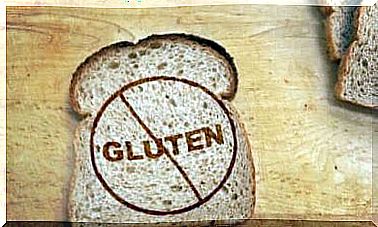Intermittent Fasting For Weight Loss And Strengthening Health
There are strategies that help you lose weight without affecting your health; on the contrary, they help to strengthen it. Intermittent fasting is one of them. An easy-to-apply alternative, the key to which is discipline.

The word fast should not frighten you or make you imagine sacrifice, suffering or hunger. Intermittent fasting involves organizing our meals differently so that our digestive system has more time to rest, and thus allow other functions of our body to work better, such as nightly rest or weight loss. .
Find out in this article what intermittent fasting is and how we should practice it to improve our health and lose weight more easily.
Intermittent fasting is not a diet
Intermittent fasting is not at all what you imagine when you think of fasting. It’s not about being hungry or counting calories. Rather, it is a change in the way we eat to do so in a healthier and smarter way. So that we can achieve optimal weight and health without having to be obsessed with food.
Intermittent fasting involves extending the number of hours of fasting that we naturally do every night between dinner and breakfast. Thus we improve our body’s ability to regenerate and lose weight. It is therefore a matter of eating before dinner and having breakfast later than usual or doing it at the times that suit us best according to our lifestyle, our family customs, our work, etc.
The important thing is to avoid eating solid foods for at least 12 hours. And the ideal would be to arrive at 6 p.m. It is not necessary to do this every day, but at least several times a week.
How to organize?

For beginners
Some nutritionists suggest skipping breakfast or dinner. This option is valid from time to time, as long as it does not make us anxious or hungry. As a beginner, we can do intermittent fasting according to the following schedule:
- Breakfast : at 9:00 a.m.
- Lunch : at 2:00 p.m.
- Dinner : before 9:00 p.m.
Some will be surprised to find that they are already instinctively doing a gentle, intermittent fast. However, some fall into the mistake of eating too late or eating at night. So, with this first proposition, we would start with a 12 hour fast.
For experts
For those who have already overcome the 12 hour fast without any problems, we present the following alternative:
- Breakfast : at 11:00 a.m.
- Lunch : at 3:00 p.m.
- Dinner : Before 7:00 p.m.
With this proposal, we are going to test our body’s response to 16 hours of fasting. We may even be less hungry in the morning, the longer the night fast will be. But if we want to extend this recommendation to 6 p.m. fasting, we could combine breakfast with lunch or lunch with dinner.
How do you get there?

The key to starting intermittent fasting is to take the opportunity to improve our diet. And also to choose nutritious and satiating foods, and thus to avoid all those which do not provide us with nutrition.
Recommended foods
- Vegetable oils of first cold pressing, such as coconut oil, olive oil, sesame oil, among others
- Legumes
- Eggs
- Dried fruits
- Seeds
- Lawyer
- Oats
- Buckwheat
- Quinoa
Foods not recommended
- Refined flour (industrial pastries, cookies, white bread)
- White sugar
- Ice cream and other dairy desserts
- Fries
- Sausages
- Ready meals
- Soft drinks and bottled juices
- Snack appetizers
Practical advice
Make sure you follow these tips for successful intermittent fasting:
- Drink plenty of water throughout the day, without meals and especially on an empty stomach. Although we are often hungry, we actually experience severe dehydration.
- Don’t be hungry. You should feel full, but choose healthy foods.
- During fasting hours, you can take medicinal infusions.
- Chew food well and enjoy each dish. So be original in the recipes and try new things.
- You can start your intermittent fasting while on vacation to lengthen and shorten sleep hours.
- Avoid fasting for longer hours on days when you have to exert a great deal of effort, drive, or any activity that demands your full attention.
From the first intermittent fast, you will feel full of energy and vitality as your body deflates and becomes lighter. The benefits will give you the motivation to continue to fast more often without effort.









